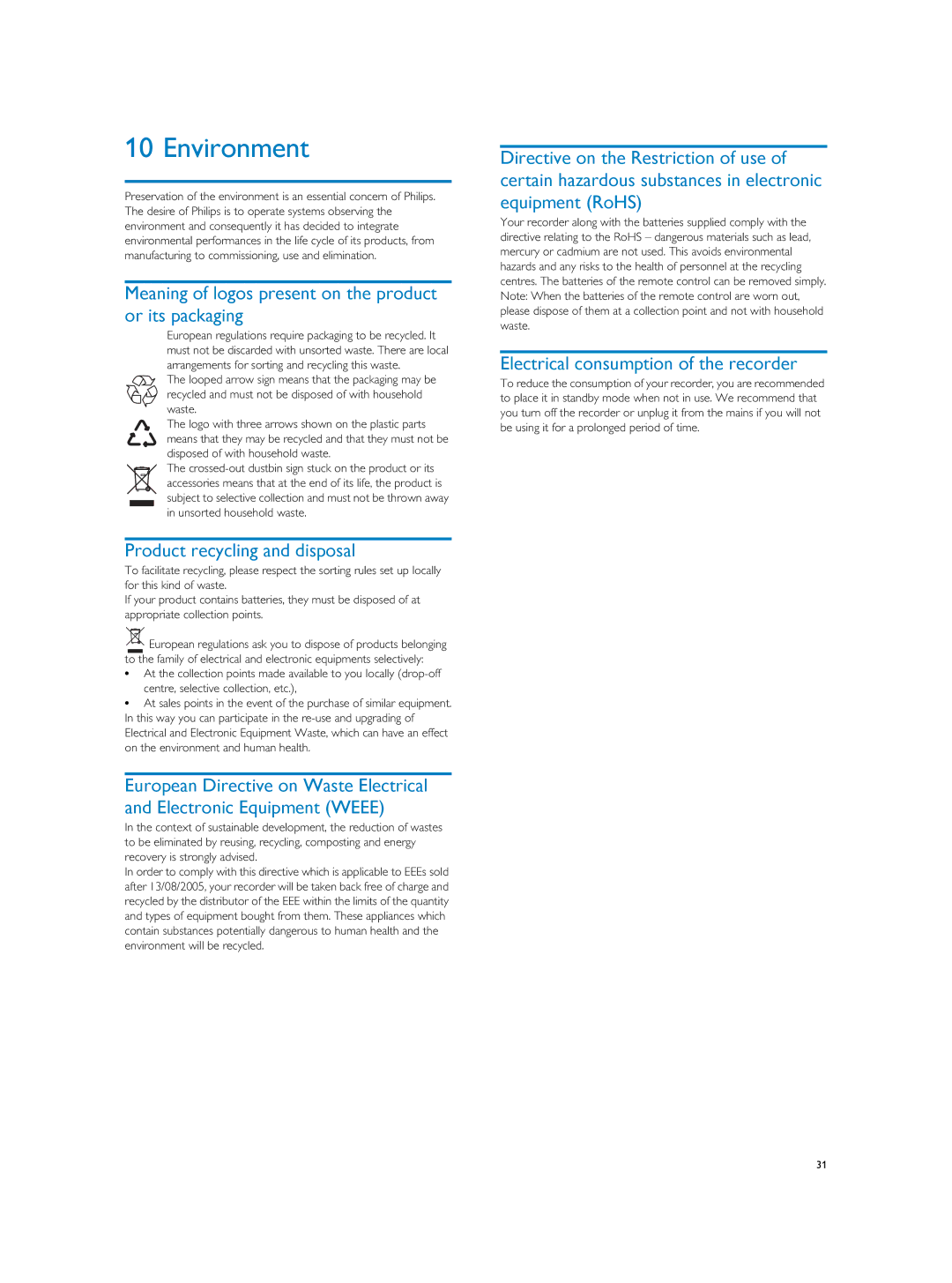
10 Environment
Preservation of the environment is an essential concern of Philips. The desire of Philips is to operate systems observing the environment and consequently it has decided to integrate environmental performances in the life cycle of its products, from manufacturing to commissioning, use and elimination.
Meaning of logos present on the product or its packaging
European regulations require packaging to be recycled. It must not be discarded with unsorted waste. There are local arrangements for sorting and recycling this waste.
The looped arrow sign means that the packaging may be recycled and must not be disposed of with household waste.
The logo with three arrows shown on the plastic parts means that they may be recycled and that they must not be disposed of with household waste.
The
Product recycling and disposal
To facilitate recycling, please respect the sorting rules set up locally for this kind of waste.
If your product contains batteries, they must be disposed of at appropriate collection points.
![]() European regulations ask you to dispose of products belonging to the family of electrical and electronic equipments selectively:
European regulations ask you to dispose of products belonging to the family of electrical and electronic equipments selectively:
•At the collection points made available to you locally
•At sales points in the event of the purchase of similar equipment. In this way you can participate in the
European Directive on Waste Electrical and Electronic Equipment (WEEE)
In the context of sustainable development, the reduction of wastes to be eliminated by reusing, recycling, composting and energy recovery is strongly advised.
In order to comply with this directive which is applicable to EEEs sold after 13/08/2005, your recorder will be taken back free of charge and recycled by the distributor of the EEE within the limits of the quantity and types of equipment bought from them. These appliances which contain substances potentially dangerous to human health and the environment will be recycled.
Directive on the Restriction of use of certain hazardous substances in electronic equipment (RoHS)
Your recorder along with the batteries supplied comply with the directive relating to the RoHS – dangerous materials such as lead, mercury or cadmium are not used. This avoids environmental hazards and any risks to the health of personnel at the recycling centres. The batteries of the remote control can be removed simply. Note: When the batteries of the remote control are worn out, please dispose of them at a collection point and not with household waste.
Electrical consumption of the recorder
To reduce the consumption of your recorder, you are recommended to place it in standby mode when not in use. We recommend that you turn off the recorder or unplug it from the mains if you will not be using it for a prolonged period of time.
31
